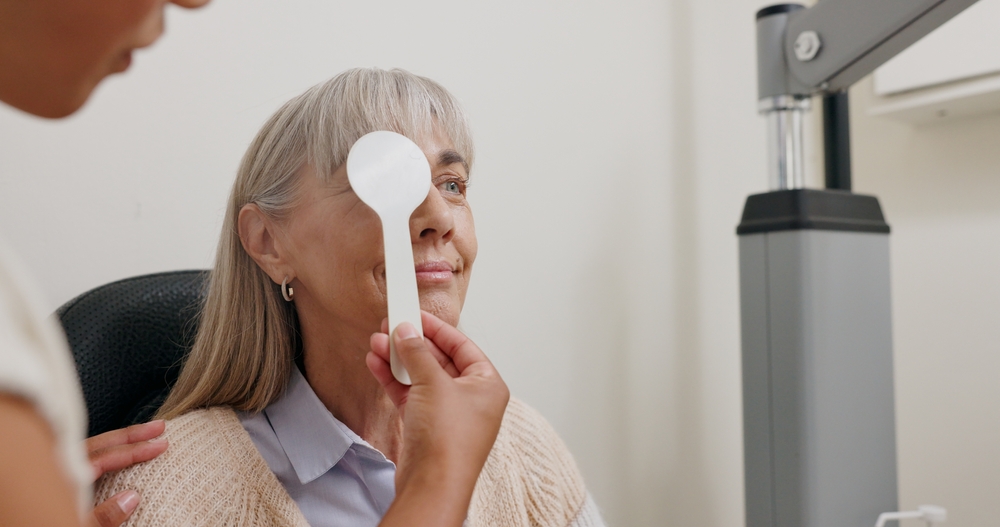
Low vision, a condition that affects millions of individuals worldwide, can significantly impact one's quality of life. Understanding the causes, symptoms, and proper diagnosis of low vision is crucial for seeking the right treatment and regaining independence.
What is Low Vision?
Low vision is a term used to describe a visual impairment that cannot be fully corrected with traditional eyeglasses, contact lenses, or medical treatment. This condition can range from mild to severe, and it can affect one's ability to perform everyday tasks, such as reading, writing, and navigating the world around them.
Causes of Low Vision
Low vision can result from various factors, many of which are linked to specific eye conditions. One common cause is age-related macular degeneration (AMD), which affects the macula, the part of the eye responsible for central vision. AMD is a leading cause of vision loss in older adults. Another major contributor is diabetic retinopathy, a complication of diabetes that damages the blood vessels in the retina, ultimately impairing vision.
Glaucoma, a group of eye conditions that progressively damage the optic nerve, can lead to a gradual loss of both peripheral and central vision. Cataracts, which cause the eye's natural lens to become cloudy, can also result in blurred or distorted vision.
Additionally, certain inherited eye conditions, such as retinitis pigmentosa and Stargardt's disease, may lead to progressive vision loss over time. Each of these conditions affects vision in unique ways, contributing to the broader category of low vision.
Common Symptoms of Low Vision
Individuals with low vision may experience a range of symptoms, including:
Difficulty reading, even with the use of eyeglasses or magnifiers
Trouble recognizing faces or identifying colors
Increased sensitivity to glare or bright lights
Reduced peripheral vision or "tunnel vision"
Difficulty adapting to changes in lighting conditions
Working with an Optometrist for Accurate Diagnosis
Diagnosing low vision begins with a comprehensive eye examination conducted by an optometrist. During this evaluation, the eye doctor will first measure your visual acuity, determining the sharpness of your vision using standard eye charts.
Next, they will assess your visual field, checking for any issues with peripheral vision, blind spots, or areas of reduced sight. The structure and overall health of your eyes will be thoroughly examined to detect any underlying conditions that may contribute to low vision.
In addition, they will discuss your symptoms and how your visual challenges affect your daily life. Based on these findings, the eye care professional will identify the cause of your low vision and create a personalized treatment plan tailored to your specific needs.
Treatment Options for Low Vision
There are several treatment options available for individuals with low vision, depending on the underlying cause and the severity of the condition. These may include:
Prescription Eyeglasses or Contact Lenses: Your eye care professional may prescribe specialized lenses or contacts to help maximize your remaining vision.
Magnifiers and Other Assistive Devices: Various magnifying devices, such as handheld or stand-mounted magnifiers, can help with tasks like reading and writing.
Specialized Lighting: Adjusting the lighting in your environment, such as using task lighting or reducing glare, can make it easier to perform daily activities.
Medical Treatments: In some cases, treatments like surgery or medication may be used to address the underlying cause of low vision and potentially improve visual function.
Schedule a Consultation with Kibo Eyecare Today
Diagnosing low vision is a critical first step in managing this condition and improving the quality of life for those affected. By working closely with your optometrist, individuals can receive an accurate diagnosis, access appropriate treatment options, and explore the latest assistive devices and technologies.
If you or a loved one are experiencing vision challenges, schedule a consultation with Kibo Eyecare. We can provide a comprehensive evaluation, personalized treatment plan, and access to the latest assistive technologies to help you regain your independence and improve your quality of life. Contact our office in Glastonbury, Connecticut, by calling (860) 659-5900 to book an appointment today.







